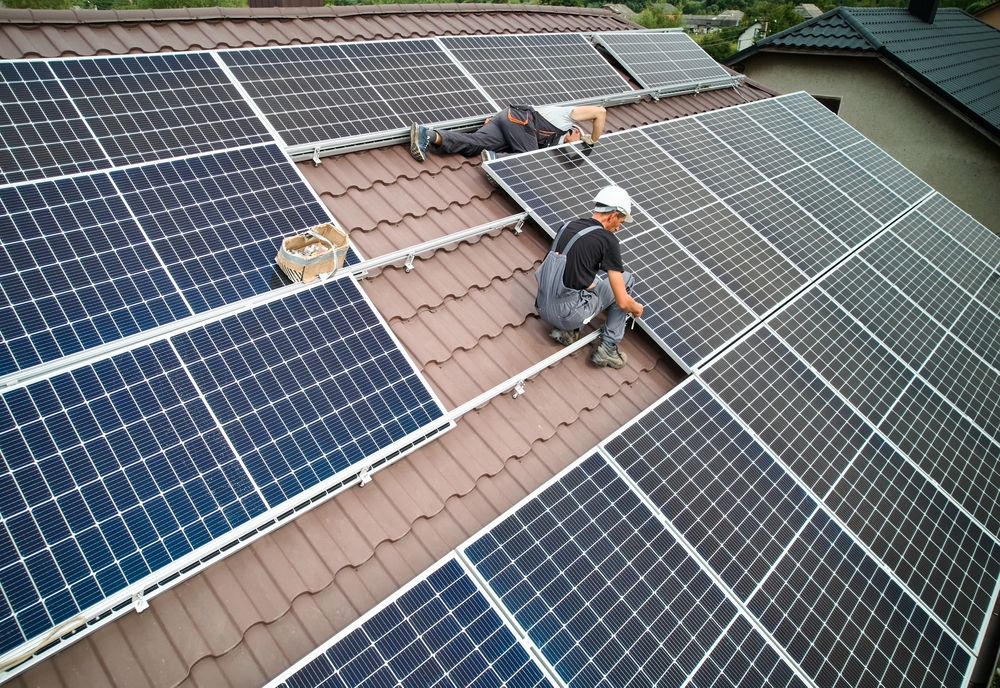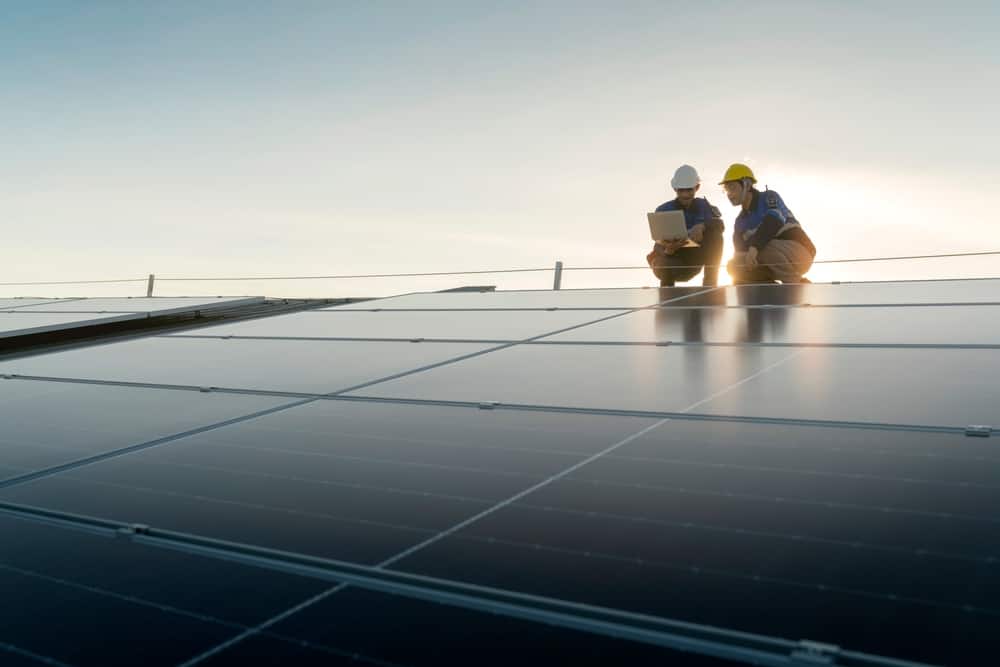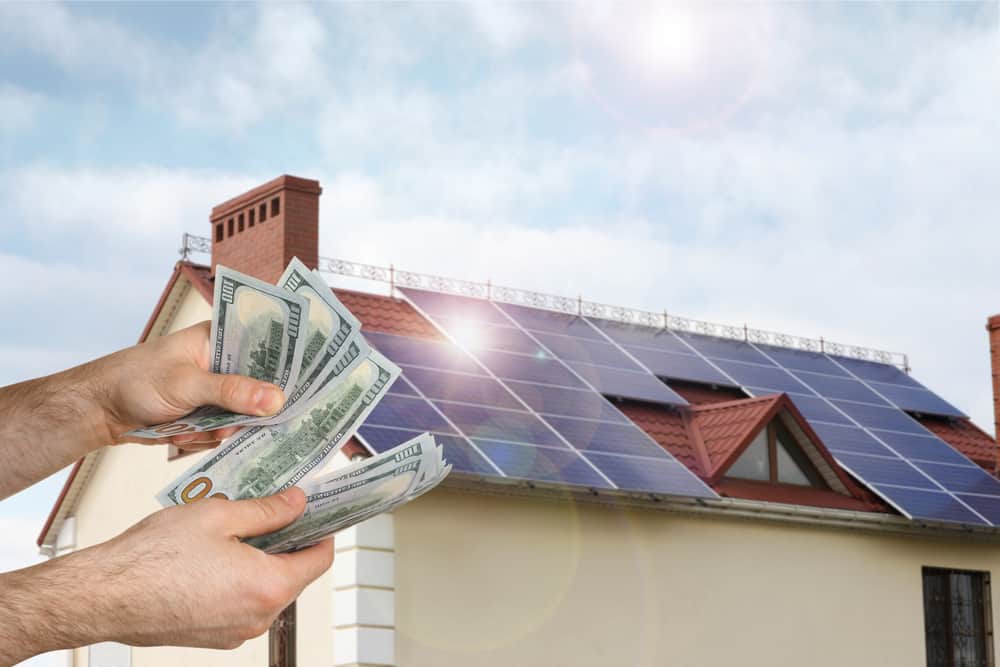The Hidden Savings and Cost of Solar Panels for Your 3 Bedroom Home
As a homeowner, I've noticed a growing interest in sustainable and renewable energy sources in recent years, and solar panels have captured my attention as one of the most promising options. The idea of being more eco-friendly and reducing my carbon footprint while potentially saving money on energy bills in the long run sounds appealing.
I've learned that solar panels emit zero greenhouse gases, which is fantastic for the environment, and their long-term benefits seem promising. What's even more appealing is that solar panels are durable and require minimal maintenance, making them a practical and cost-effective investment for the future.
Understanding Solar Panels
Solar panels, scientifically referred to as photovoltaic (PV) panels, are sophisticated devices designed to harness the transformative power of sunlight and convert it into usable electricity. This incredible technology offers a promising solution to our growing energy needs while addressing pressing environmental concerns. By tapping into the boundless energy of the sun, solar panels enable homeowners and businesses alike to embrace renewable energy sources, reducing their carbon footprint and contributing to a greener future.
The underlying principle behind solar panels is the photovoltaic effect. This phenomenon involves the conversion of light photons from the sun into electrical energy. Each solar panel consists of numerous solar cells, which are typically made of semiconductor materials like silicon. When sunlight strikes these cells, it energizes electrons within the material, generating a flow of direct current (DC) electricity. An integral part of the solar panel system, an inverter then converts this DC power into alternating current (AC) electricity, suitable for powering household appliances, electronic devices, and other electricity-dependent amenities.
The Benefits of Solar Panels
Before delving into the intricacies of solar panel costs, let us thoroughly explore the myriad benefits they offer to homeowners, solidifying their status as a highly rewarding investment. The advantages of adopting solar panels encompass a broad range of aspects, including:
Cost Savings and Financial Benefits
One of the most compelling reasons to embrace solar panels is their potential for substantial cost savings. By harnessing the sun's energy and generating your own electricity, you can dramatically reduce your reliance on traditional utility companies. Over time, these energy savings accumulate, resulting in significant reductions in your monthly electricity bills. Additionally, in regions with favorable net metering policies, surplus electricity generated by your solar panels can be sold back to the grid, leading to potential credits or compensation, further enhancing the financial benefits of this green investment.
Positive Environmental Impact
Solar panels offer a definitive solution to combat climate change and contribute to environmental preservation. By relying on clean and renewable solar energy, you actively reduce the consumption of fossil fuels, consequently minimizing harmful greenhouse gas emissions. Embracing solar power helps mitigate air pollution, decrease dependence on finite resources, and promote a sustainable, eco-friendly energy future for generations to come.
Enhanced Home Value and Market Appeal
Beyond the immediate financial gains, solar panels also hold the potential to increase the overall value of your property. As more homebuyers prioritize sustainability and energy efficiency, a solar-powered home becomes increasingly appealing in the real estate market. Numerous studies indicate that homes equipped with solar panels tend to sell at higher prices and often experience reduced time on the market, reflecting the growing demand for environmentally-conscious properties.
Energy Independence and Security
Solar panels grant homeowners a newfound sense of energy independence. By generating electricity on-site, you become less reliant on external energy sources, such as traditional power grids. This resilience is particularly valuable during power outages or emergencies when solar-powered homes can continue to function, providing a consistent supply of electricity. The assurance of energy security fosters a sense of self-sufficiency, giving homeowners peace of mind and control over their energy needs.
Environmental Stewardship and Community Contribution
Adopting solar panels aligns with a sense of environmental stewardship, showcasing your commitment to sustainable living and responsible energy consumption. As more households transition to solar power, a collective impact emerges, leading to broader reductions in carbon footprints and an overall cleaner environment. By leading the way in renewable energy adoption, you contribute to a greener community, inspiring others to follow suit and create a positive ripple effect on a global scale.

The Cost of Solar Panels
The cost of installing solar panels is influenced by various factors, contributing to the complexity of providing a precise estimate. To better understand the financial aspects of adopting solar energy, let's delve into the key factors that influence solar panel costs.
System Size and Energy Requirements
The size of the solar panel system you need is a significant determinant of the overall cost. Larger systems, capable of generating more electricity, generally come with a higher price tag. The energy requirements of your household or business, based on your average electricity consumption, play a crucial role in determining the size of the solar panel system required.
Geographical Location and Installation Costs
The average cost of solar panels in florida can vary significantly based on your geographical location. Different regions experience varying solar irradiance, climate conditions, and local regulations, which can all impact installation costs. In some areas, the cost of labor and permits may be higher, affecting the total cost of the solar panel system.
Type and Quality of Solar Panels
The market offers a variety of solar panel types, each with distinct characteristics, efficiency levels, and costs. Monocrystalline, polycrystalline, thin-film, and other emerging technologies all have their strengths and weaknesses, influencing the price point of the solar panels you choose.
Incentives, Rebates, and Tax Credits
Government incentives and rebates play a significant role in offsetting the cost of installing solar panels. These incentives can vary from state to state and even between local municipalities, impacting the overall cost significantly. Federal investment tax credits (ITC) have been instrumental in promoting solar adoption, providing a tax credit equal to a percentage of the total solar panel system cost.
Net Metering and Energy Buyback Programs
Many regions offer net metering programs, allowing homeowners to sell excess electricity generated by their solar panels back to the grid. This mechanism effectively reduces the electricity bill or provides compensation, making solar panels even more financially appealing.
Factors That Affect the Cost of Solar Panels
There are several factors that can affect the true cost of solar panels for a 3 bedroom house, including:
System Size and Energy Requirements
The cost of residential solar panels is directly influenced by the size of the system required to meet the energy needs of your household. Factors such as the number of occupants, electrical appliances, and overall energy consumption play a crucial role in determining the optimal system size. A larger system with more solar panels will naturally come with a higher upfront cost but can lead to greater long-term savings.
Geographical Location and Sunlight Availability
The location of your home significantly impacts the efficiency and cost-effectiveness of solar panels. Regions with higher solar irradiance and more sunlight throughout the year tend to generate more electricity from solar panels. Consequently, areas with abundant sunlight may require fewer solar panels, potentially reducing the overall cost of the system. On the other hand, areas with lower sunlight availability might require a larger system to generate the same amount of electricity, potentially leading to higher costs.
Type and Quality of Solar Panels
The choice of solar panel technology can significantly affect the cost of the system. Different types of solar panels have varying levels of efficiency, durability, and production costs. Monocrystalline panels, known for their high efficiency, often come at a premium price. Polycrystalline panels, while slightly less efficient, tend to be more cost-effective. Thin-film panels, though less efficient, offer versatility and lower manufacturing costs. Weighing the advantages and disadvantages of each panel type is essential to determine the most suitable option within your budget.
Installation Costs and Complexity
The complexity of the installation process, including factors like roof type, angle, and any necessary structural modifications, can affect the overall cost. For instance, a roof with multiple angles or shading issues may require additional mounting hardware or adjustments, impacting installation expenses. Similarly, factors like electrical upgrades and connection to the grid might incur extra costs.
Incentives, Rebates, and Tax Credits
Government incentives, rebates, and tax credits have a substantial impact on the overall cost of solar panels per square foot. Federal, state, and local governments often offer financial incentives to promote solar energy adoption. These incentives can include tax credits, rebates, and grants, effectively reducing the upfront cost of the system. Additionally, some utilities may offer buyback programs or net metering, allowing you to sell excess electricity back to the grid, further offsetting the cost and potentially leading to future savings.
Financial and Payment Options
The method of financing your solar panel system can also influence the overall cost. Options like cash purchases, solar loans, leases, or power purchase agreements (PPAs) come with different financial implications. For example, upfront cash purchases may require a larger initial investment but provide ownership and long-term savings, while leases or PPAs often involve lower upfront costs but may limit potential savings in the long run.

Calculating Your Energy Needs
When considering installing solar panels, it is crucial to conduct a thorough analysis of your energy consumption to ensure that the solar energy system meets your home's energy demands. You can perform this calculation by examining your energy bills and calculating the average monthly usage of electricity.
It is also important to factor in potential future changes in your energy usage, such as the addition of new appliances or the increase in the number of occupants in your home. Additionally, you should take into account the climate and weather patterns in your area, as this can affect the amount of sunlight and therefore the energy production of your solar panels.
By taking these factors into consideration, you can determine the optimal size and configuration of your solar energy system to achieve maximum efficiency and cost savings.
The ROI of Solar Panels
Solar panels are a renewable energy technology that can provide a clean and sustainable source of electricity. Although the initial cost of installing a solar panel system may seem daunting, it is important to consider the long-term financial benefits that can be gained from using this technology.
In addition to being environmentally friendly, solar panels can help you save a significant amount of money on your electricity bills over time. The exact amount of savings will depend on various factors, including the size of your solar panel system, your energy usage patterns, and the cost of electricity in your area.
The return on investment (ROI) of solar panels is typically around 5-10 years, which means that the cost of installing the system can be recovered in this timeframe through savings on your electricity bills. Moreover, the lifespan of a solar panel system is typically around 25-30 years, which means that you can enjoy free electricity for the remainder of its lifespan after the system has paid for itself.
In addition, many utility companies offer incentives and tax credits for installing solar panels, which can further reduce the upfront costs and improve the financial benefits of this technology.
Financing Options
Embracing solar energy through the installation of solar panels can be a significant investment. For those unable to pay the upfront cost, a variety of financing options are available to make the transition to renewable energy more accessible. Below are detailed descriptions of common financing methods:
Solar Loans
Numerous financial institutions and specialized lenders offer solar loans tailored explicitly for solar panel installations. These loans allow homeowners to borrow the necessary funds for the upfront cost of the solar system and spread out the repayment over time through fixed monthly installments. Solar loans often come with competitive interest rates and flexible terms, empowering homeowners to own their solar panel systems gradually while enjoying the benefits of reduced utility bills.
Home Equity Loans
Another option to finance solar panels is by utilizing a home equity loan. Homeowners can borrow against the equity in their property, which is the difference between the home's market value and the outstanding mortgage balance. By leveraging their home's value, individuals can secure a low-interest loan to cover the upfront cost of the solar panel installation. Home equity loans often offer attractive interest rates and extended repayment periods, making them an appealing option for financing solar projects.
Solar Leases
Some companies provide solar panel leasing options, allowing homeowners to “rent” the solar panels and pay a fixed monthly fee. The leasing company retains ownership of the solar panels, and in return, the homeowner benefits from the electricity generated by the system. While this option may have little to no upfront cost, it is essential to carefully review the terms of the lease agreement, as it might limit the potential savings and benefits compared to owning the solar panels outright.
Power Purchase Agreements (PPAs)
With a Power Purchase Agreement (PPA), a third-party solar provider installs and owns the solar panels on your property. In this arrangement, the homeowner agrees to buy the electricity generated by the solar panels at a predetermined fixed rate, often lower than standard utility rates. PPAs can be a cost-effective option for homeowners who want to access clean energy without shouldering the upfront cost or maintenance responsibilities associated with owning the system.
Maintenance and Upkeep
Solar panels are considered to be a low-maintenance and cost-effective option for generating electricity from renewable sources. However, despite their durability and longevity, they require some regular upkeep to ensure optimal performance. One of the essential maintenance practices for solar panels is to keep them clean and free of debris.
Accumulated dust, dirt, leaves, and other debris on the surface of the panels can reduce their efficiency by blocking sunlight and reducing energy output. It is recommended to clean the panels with a soft brush or a cloth and water every few months to keep them in good condition.
Another critical component that may require replacement in a solar panel system is the inverter. The inverter plays a vital role in converting the DC power generated by the solar panels into AC power that can be used in your home. The lifespan of an inverter usually ranges from 10 to 15 years, depending on the quality of the equipment, the level of usage, and environmental factors.
As the inverter ages, it may become less efficient, and its performance may decline, resulting in lower energy output or even system failure. Therefore, it is crucial to have the inverter checked regularly and replaced when necessary to ensure that your solar panel system operates at its maximum potential.
Conclusion
In this comprehensive article, we explore the numerous benefits of adopting solar panels as a sustainable and renewable energy solution for homeowners. Solar panels offer a clean and eco-friendly way to harness the power of the sun, making them an attractive option for those looking to reduce their carbon footprint and save money on energy bills in the long run.
The article explains the underlying principle behind solar panels, the photovoltaic effect, which allows sunlight to be converted into usable electricity. It highlights the positive environmental impact of solar energy, emphasizing the reduction of greenhouse gas emissions and air pollution, while promoting a greener and more sustainable future.
Moreover, homeowners can reap significant cost savings through solar energy adoption. The article discusses the return on investment (ROI) of solar panels, typically achieved within 5-10 years, leading to decades of free electricity once the initial investment is recovered. The financial benefits are further enhanced by government incentives, rebates, and tax credits that can significantly offset the upfront costs.
Sources
https://www.seia.org/initiatives/solar-investment-tax-credit-itc
https://www.thisoldhouse.com/solar-alternative-energy/reviews/solar-panel-cost
https://www.forbes.com/home-improvement/solar/does-solar-increase-home-value/
https://formesolar.com/cost-of-solar-panels-for-a-3-bedroom-house/
https://www.solar.com/learn/what-is-the-cost-of-solar-for-a-3-bedroom-house/
https://www.thisoldhouse.com/solar-alternative-energy/reviews/solar-panel-cost

